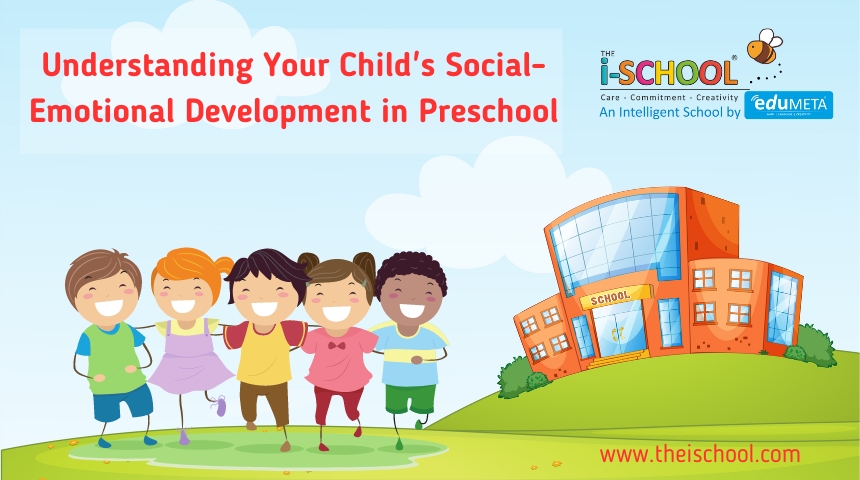Understanding Your Child’s Social-Emotional Development in Preschool

Preschool is a time of incredible growth for your child, not just academically, but also socially and emotionally. It’s a period filled with new friendships, learning to share, navigating big emotions, and developing a stronger sense of self. As parents, understanding this social-emotional development can help you better support your child during this exciting yet sometimes challenging phase.
What to Expect:
From Parallel Play to Teamwork: At the start of preschool, children might play alongside each other (“parallel play”) rather than directly interacting. Over time, they’ll develop collaboration skills and start playing together (“cooperative play”).
Learning to Share: Sharing toys and taking turns can be tricky for young children. Preschool helps them understand the concept of sharing and develop patience while waiting for their turn.
Expressing Emotions: Preschoolers experience a wide range of emotions, from joy and excitement to frustration and anger. They’ll learn to identify and express these feelings in healthy ways.
Building Self-Esteem: Preschool activities and positive reinforcement from teachers and peers help children develop a sense of confidence and accomplishment.
Making Friends: Preschool provides opportunities for children to form friendships and learn valuable social skills like communication, empathy, and conflict resolution.
How You Can Help:
Talk About Emotions: Help your child identify and name their feelings. Talk about situations where they might experience different emotions and how to manage them appropriately.
Practice Social Skills at Home: Role-play social situations like asking to join a game or sharing a toy. Encourage empathy by discussing how others might feel.
Read Books About Feelings: Books with relatable characters experiencing emotions are a great way to open up conversations and provide positive coping mechanisms.
Positive Reinforcement: Acknowledge and praise your child’s efforts at sharing, taking turns, or expressing themself calmly.
Open Communication: Create a safe space for your child to talk about their experiences at preschool, both positive and negative. Listen attentively and offer support.
Remember: Every child develops at their own pace. If you have any concerns about your child’s social-emotional development, talk to their preschool teacher or pediatrician.
Additional Tips:
Incorporate social-emotional learning activities at home: Games, puzzles, and pretend play can all help develop social skills.
Lead by example: Show your child how to manage your own emotions and interact respectfully with others.
Celebrate milestones: Acknowledge and celebrate your child’s progress in their social and emotional development, no matter how small.
By understanding your child’s social-emotional journey and offering support along the way, you can help them thrive in preschool and beyond.
